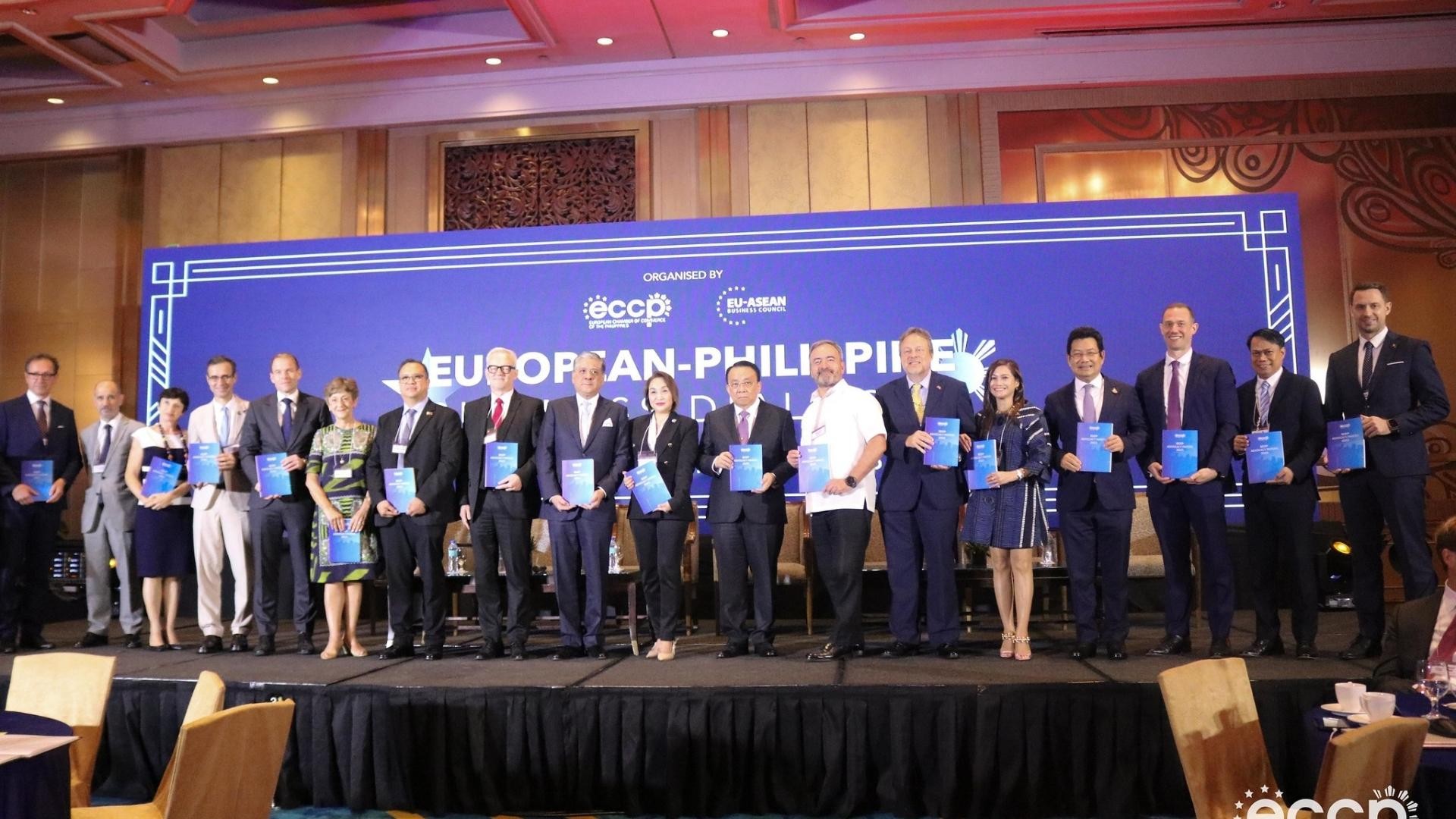MANILA – The European Chamber of Commerce of the Philippines (ECCP) and the European Union-ASEAN Business Council (EU-ABC) have turned over to the Philippine government advocacy papers on 11 priority sectors eyed to help attract more foreign investments.
During the 10th European-Philippine Business Dialogue in Makati City Thursday, the business groups said the advocacy papers focused on the sectors of agriculture, automotive, customs and logistics, environment and water, food and beverage, healthcare, human capital and education, infrastructure and aviation, renewable energy and energy efficiency, tax and financial services, and tourism.
“We are hopeful that these advocacy papers will serve as constructive tool for stakeholders to identify areas of cooperation and enhanced economic outcomes,” ECCP executive director Florian Gottein said.
The advocacy papers were received by Executive Secretary Lucas Bersamin, Special Assistant to the President Antonio Ernesto Lagdameo Jr., Finance Undersecretary Zeno Ronald Abenoja, Trade Undersecretary Maria Blanca Kim Lokin, and Anti-Red Tape Authority Deputy Director General Gerald Divinagracia.
“Over the years, the government and industry stakeholders have taken tremendous strides towards promoting the Philippines as a smart investment choice in the face of adversities. We are optimistic that the enhancement of economic reforms along with the recent establishment of green lanes for strategic investments will prove instrumental in further opening the country’s doors for increased trade and high-value investments,” ECCP president Lars Wittig said.
One of the recommendations in the agriculture sector is the further liberalization of rice and corn industries to ensure food security and address the current high food inflation.
“We reiterate our recommendation to review and amend laws impeding foreign participation in certain agricultural activities. An example of this would be in the rice and corn industry where foreign participation is heavily limited by 1960 law that prohibits foreigners from engaging in the culture, milling, warehousing, transporting, exportation, importation, distribution, or acquisition for the purpose of trade of such crops,” the advocacy paper on agriculture stated.
The European business groups also urged the Marcos administration to establish the Water Resources Department to oversee the water sector, noting that creation of this department will increase investments in water and sanitation-related programs and projects.
Early this week, Gottein said the previous advocacy papers of the ECCP and the EU-ABC have pushed for the passage of the amendments to the Foreign Investment Act, the Public Service Act, and the Retail Trade Liberalization Act, as well as allowing 100 percent foreign ownership on renewable energy (RE) projects.
He said the proposed changes would help the Philippines entice more foreign direct investments (FDIs) not only from Europe but also from other parts of the world.
Relatively, Wittig said that “with all these positive developments, I say with strong conviction — the time for increased trade and investments is now.”
“There is no better time to invest in the Philippines (but) now. It is incumbent upon us to champion the Philippines as an investment destination, and put the Philippines on the spotlight,” he said.
Moreover, the advocacy papers likewise support the renewal of the EU Generalised Scheme of Preferences Plus (GSP+) and encourage the Philippines and the EU to resume negotiations for a free trade agreement (FTA).
“The current EU-Philippines economic landscape prompts the need for the retention of the GSP+ grant in the Philippines and underscores the urgency of fast-tracking the EU-PH FTA negotiations,” the document read.
Lokin said the country’s utilization of the EU GSP+ stood at 76 percent in 2021, the highest utilization rate since the country benefitted from the preferential tariff granted by the EU.
The GSP+ is expected to expire in 2023.
Source: https://www.pna.gov.ph/articles/1202214
